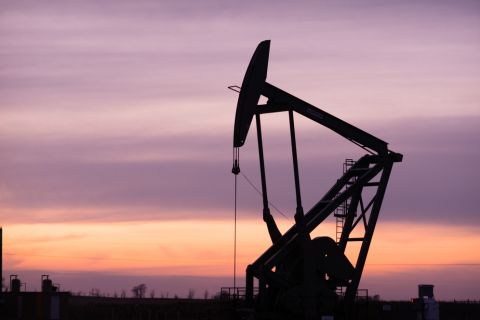International crude benchmarks slipped on Nov. 1 but recovered following China’s weekend statement that it would tap its state fuel reserve while national refiners ramp up output sharply to avert a diesel shortage in the world's second-largest oil user.
In a rare public statement on Oct. 31, China said it was releasing gasoline and diesel reserves to boost market supply and stabilize prices.
The news comes after media reports in recent weeks of tight diesel supplies and queues at petrol stations in several provinces.
Chinese refiners cut fuel output in the third quarter because of COVID-19 curbs and floods but diesel consumption rebounded, partly triggered by a widespread power crunch that caught the market by surprise.
China has been a net exporter of diesel and gasoline for years, but Beijing’s recent clampdown aimed at removing excess fuel output, from cutting quotas for crude oil imports and refined fuel exports to a hefty import tax on a diesel blending component, tightened supplies of fuel, especially diesel.
Beijing has taken steps to cool a stellar commodity price rally this year, releasing crude oil and base metals to cool prices in a rare move in the last few months.
“[Oil] product rotation should be more common than crude [oil releases from reserves],” said Sengyick Tee, analyst at Beijing-based consultancy SIA Energy, adding that such moves were not typically confirmed in official statements.
The move on Oct. 31 could be the first time Beijing has publicly announced a release of oil products, he added.
“Words are bigger than actions, [China] learned it from OPEC+,” he said, referring to communications on supply from the alliance of the world’s major oil producers that can have the effect of lowering market prices.
Brent crude lost 0.6% on Nov. 1 before flipping to stand up nearly 50 cents a barrel by 0920GMT, in the wake of the previous day’s statement by the National Food and Strategic Reserves Administration.
Market watchers said it was the first time Beijing announced the regular rotation for gasoline and diesel publicly.
The state reserves bureau said the rotation was an annual one, but did not disclose the volume released.
“The rotation of gasoline and diesel from storage this time will be used to increase market resources, ease supply tensions, and give play to the regulatory role of the national refined oil reserve market,” it said.
Ramping Up Output
Mia Geng, an analyst with consultants FGE, said national oil firms were already ramping up runs and increasing gasoil supply this month.
Sinopec Corp., Asia’s largest oil refiner, has said its refineries were running at full rates, with plans to raise diesel output by nearly half from January-August levels in November and December.
Its diesel output in September and October had already risen 20% month on month, the refiner told state television.
“We believe the tight diesel supplies in several regions are temporary and expect the situation to improve soon,” Ling Yiqun, a Sinopec vice president, was cited as saying.
The tightness in diesel supply that began to be felt in September has led state-run CNOOC to make rare imports of 50,000 tonnes of diesel for delivery into the southern province of Guangdong, Reuters has reported.
With a planned output hike, Sinopec has no plans to import diesel for now, a trader with direct knowledge of the refiner's fuel trades said.
Diesel Crunch
Second-largest state refiner PetroChina told state television it had boosted its imports of crude oil by 10% year-on-year in October and ramped up diesel supply by 23%.
“Considering the demand downside from the current COVID-19 resurgence and the upcoming winter, the need for significant stocks release is limited,” Geng added.
Several central and southern provinces have seen long lines of trucks queuing at gas stations but were only able to get small portions due to tight diesel supplies and rationing by the fuel stations, local media have said.
Wholesale diesel prices in the manufacturing and exporting hub of Guangzhou city have gained 26% since September to hit a three-year high of 8,120 yuan ($1,268.00) a tonne on Oct. 29, data from China-based consultancy Longzhong showed.
Diesel output has been falling each month since June while gasoline has been dropping since July, data from the National Bureau of Statistics showed.
By end-September Chinese commercial inventory for gasoline and diesel plunged 24% and 28% year-on-year to 15.91 million tonnes and 17.71 million tonnes, respectively, Longzhong data showed.
(US$1=6.4038 Chinese yuan renminbi)
Recommended Reading
Bobby Tudor on Capital Access and Oil, Gas Participation in the Energy Transition
2024-04-05 - Bobby Tudor, the founder and CEO of Artemis Energy Partners, says while public companies are generating cash, private equity firms in the upstream business are facing more difficulties raising new funds, in this Hart Energy Exclusive interview.
Petrie Partners: A Small Wonder
2024-02-01 - Petrie Partners may not be the biggest or flashiest investment bank on the block, but after over two decades, its executives have been around the block more than most.
E&P Earnings Season Proves Up Stronger Efficiencies, Profits
2024-04-04 - The 2024 outlook for E&Ps largely surprises to the upside with conservative budgets and steady volumes.
Hess Corp. Boosts Bakken Output, Drilling Ahead of Chevron Merger
2024-01-31 - Hess Corp. increased its drilling activity and output from the Bakken play of North Dakota during the fourth quarter, the E&P reported in its latest earnings.
CEO: Coterra ‘Deeply Curious’ on M&A Amid E&P Consolidation Wave
2024-02-26 - Coterra Energy has yet to get in on the large-scale M&A wave sweeping across the Lower 48—but CEO Tom Jorden said Coterra is keeping an eye on acquisition opportunities.





